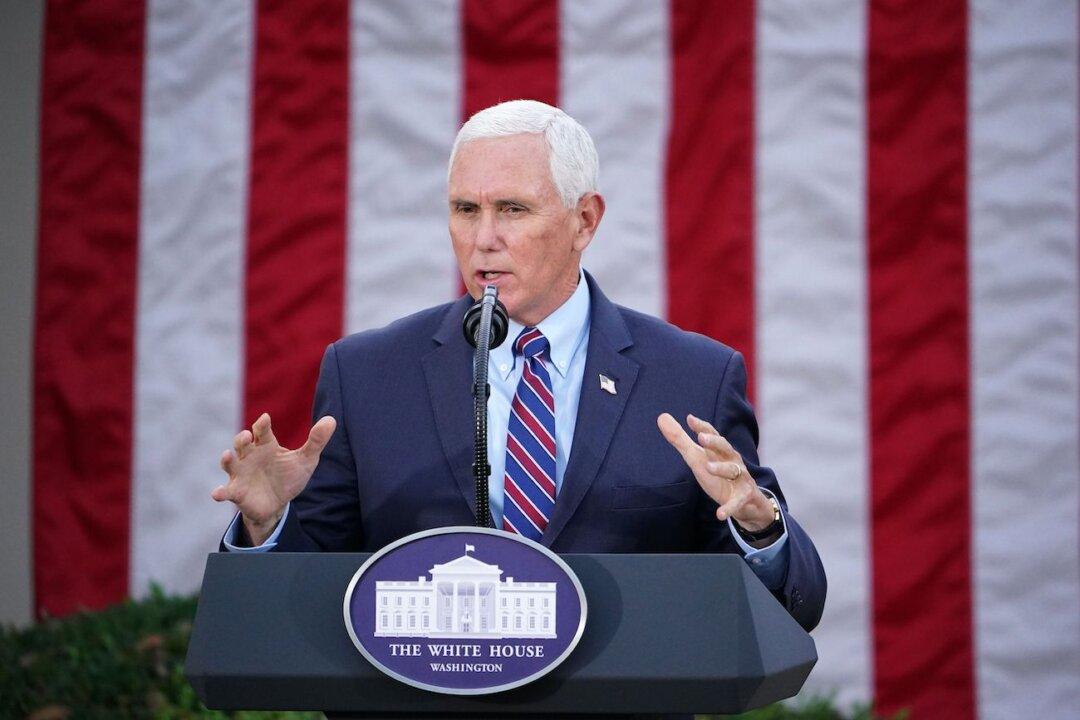Vice President Mike Pence said he welcomes efforts by lawmakers to challenge Electoral College results in the upcoming congressional joint session on Jan. 6, when the votes are formally counted, according to a new statement.
Chief of staff to the vice president Marc Short issued the statement to reporters on Saturday saying that Pence, who will be presiding over the Jan. 6 session as president of the senate, is open to considering planned objections by Republican House members and senators to Electoral College votes cast for Democratic presidential nominee Joe Biden.




